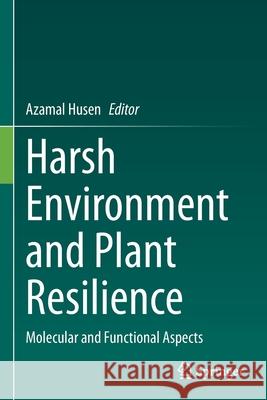Harsh Environment and Plant Resilience: Molecular and Functional Aspects » książka
topmenu
Harsh Environment and Plant Resilience: Molecular and Functional Aspects
ISBN-13: 9783030659141 / Angielski / Miękka / 2022 / 560 str.
Harsh Environment and Plant Resilience: Molecular and Functional Aspects
ISBN-13: 9783030659141 / Angielski / Miękka / 2022 / 560 str.
cena 656,17
(netto: 624,92 VAT: 5%)
Najniższa cena z 30 dni: 616,85
(netto: 624,92 VAT: 5%)
Najniższa cena z 30 dni: 616,85
Termin realizacji zamówienia:
ok. 16-18 dni roboczych.
ok. 16-18 dni roboczych.
Darmowa dostawa!
In the recent past, threats from climate change and unforeseeable environmental extremes to plant growth and productivity have consistently increased. The climate change-driven effects, especially from unpredictable environmental fluctuations, can result in an increased prevalence of abiotic and biotic stresses in plants. These stresses have slowed down the global yields of crop plants. On the other hand, food security for the rapidly growing human population in a sustainable ecosystem is a major concern of the present-day world. Thus, understanding the core developmental, physiological and molecular aspects that regulate plant growth and productivity in a challenging environment is a pivotal issue to be tackled by the scientific community dealing with sustainable agricultural and horticultural practices.
Plants are influenced by the adverse environmental conditions at various levels, their different and diverse responses play a significant role in determining their growth, production and the overall geographical distribution. The chapters in this book focus on the biological mechanisms and fundamental principles that determine how different plant species grow, perform and interact with a challenging environment.
This book covers a broad range of topics in plant science, including gene function, molecules, physiology, cell biology and plant ecology, to understand the functioning of plants under harsh environmental conditions. The book elucidates the physiological and molecular mechanisms in different plant species, ecophysiological interactions of plants, interplay between plant roots, arbuscular mycorrhizal fungi and plant growth-promoting rhizobacteria, biosensors for monitoring stress, production of secondary metabolites, stress alleviation processes, and more.











